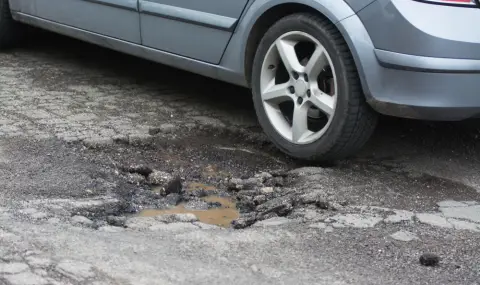Bad roads negatively affect the functionality of many parts and systems of the car, but the suspension suffers the most. That is why car owners are often faced with the need to replace parts on it.
Spindles, silent blocks or colloquially called selenium bushings, springs, shock absorbers... they can all be damaged due to the condition of our roads.
Actually, the car's shock absorbing system takes the brunt of the load in every impact – be it a hole or a bump. The most common cases of suspension failure are related to cases where worn or poor quality ball joints literally disintegrate into a serious hole.
Even if they don't break all of a sudden, pivot bolts, bushings and pads are gradually deformed by regular driving on bad roads. In addition, the steering system can also fail and problems can occur with the steering rack, tie rod and ends.
These items are particularly sensitive to strong impacts. However, tires are the first to feel various obstacles on the road, so their service life also decreases very quickly due to our bad roads.
Due to frequent potholes, wheel alignment angles are lost and the car starts to pull to the side. It is necessary to periodically adjust the convergence of the wheels. In other words, due to the state of the native road network, the cars moving in our country are much more heavily loaded from the suspension side.
The braking system also suffers from intense and frequent braking due to potholes. Pads wear faster and brake discs can overheat and deform. This causes squealing when the brake pedal is pressed and the overall braking performance decreases.
In general, bad roads force car owners to stagger to avoid obstacles, and this driving style increases the risk of an accident and, as a result, the likelihood of body repairs.
The only advice we can give you is, after a long drive on poor quality roads (and such are a large part of the republican road network), to check the pivot bolts, silent blocks, springs, shock absorbers and all other parts of the suspension.
